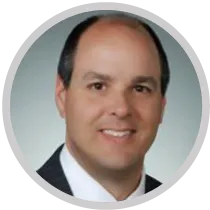
Mastering Tax Strategies for Independent Contractor Physicians
When I talk to Physicians around the country, the comment I hear the most is that they don’t feel their accountants are simply going through the motions and filling out their tax forms. What they really want is more proactive tax planning.
Taught in English
Some content may not be translated
4.9
(37,196 reviews)
Approx. 19 hours to complete
6-8 weeks at 4-6 hours a week

Instructor: Alan Conner
Course Structure
Format: Online or in-person
• Duration: 6-8 modules, self-paced or over 6–8 weeks
• Target Audience: Physicians who are 1099 independent contractors
• Includes: Downloadable guides, checklists, tax calculators, templates, and bonus Q&A via online community.
Background
BS - Banking and Finance
MBA – Finance and Accounting
Experience
Tax Prep and Strategy – 25 years
Investment Management – 30 years
Insurance and Risk Management – 25 years
Why we are different?
Unlike traditional accountants who just file taxes, we take a financial planning approach. We review your past, use IRS-approved strategies rooted in the tax code and court cases to reduce your tax bill, and help you implement and document everything. Beyond taxes, we guide you on investment planning for tax efficiency, asset protection, and risk management. Our goal is to educate and support professionals
(especially those like doctors who don’t get business training) in building long-term financial security.
Finally, I am often asked why we do this. I really enjoy the teaching portion of what we do, and my older brother is an ER physician. He signed his first contract post residency to be a 1099 contractor, only to realize that he was not at all prepared to handle the business aspect of what it meant to be an independent contractor. The other comment I often hear from our clients is “They don’t teach this is medical school”.
There are 8 modules in this course
Introduction to Taxes for Independent Contractors
Module 1 2 hours to Complete
• Why taxes are more complex for self-employed physicians
• Overview of IRS classification rules for independent contractors
• Federal vs. state tax obligations
• Common myths and mistakes
• W2 vs. 1099 income: key distinctions
Learning Objectives
• Differentiate between W-2 and 1099 income and understand their tax implications.
• Explain why tax planning is more complex for self-employed physicians.
• Identify IRS classification rules for independent contractors.
• Distinguish between federal and state tax obligations.
• Avoid common myths and mistakes about independent contractor taxes.
Business Entity Choices and Their Tax Implications
Module 2
Module 2 2 hours to Complete
• LLC (single-member and multi-member)
• S Corporation (including reasonable compensation issues)
• C Corporation: when (if ever) it makes sense
• How to choose and when to convert
• EINs, business licenses, and NPI/tax alignment
• Professional Entities (PLLC, PA, PC)
• Sole proprietorship
Learning Objectives
This module explains the main business entity types, their structures, benefits, and tax impacts, while guiding you on when to switch and how to align licensing with tax documentation—essential knowledge for anyone building a tax-efficient business.
Income Tracking and Record-Keeping Essentials
Module 3
• Why recordkeeping is the foundation of tax savings
• Tracking gross income, reimbursements, and per diems
• Tools and apps (QuickBooks, Wave, Excel templates)
• Bookkeeping best practices for busy doctors
• Creating an audit-ready document system
Maximizing Deductions & Credits
Module 4
• Why recordkeeping is the foundation of tax savings
• Tracking gross income, reimbursements, and per diems
• Tools and apps (QuickBooks, Wave, Excel templates)
• Bookkeeping best practices for busy doctors
• Creating an audit-ready document system
Paying Estimated Taxes and Managing Cash Flow
Module 5
• Why recordkeeping is the foundation of tax savings
• Tracking gross income, reimbursements, and per diems
• Tools and apps (QuickBooks, Wave, Excel templates)
• Bookkeeping best practices for busy doctors
• Creating an audit-ready document system

Retirement Planning and Tax-Deferred Strategies
Module 6
• Why recordkeeping is the foundation of tax savings
• Tracking gross income, reimbursements, and per diems
• Tools and apps (QuickBooks, Wave, Excel templates)
• Bookkeeping best practices for busy doctors
• Creating an audit-ready document system

Advanced Tax Strategies & Asset Protection
Module 7
• Hiring your spouse or children (and tax savings)
• Home office + Augusta Rule
• Deducting a portion of your home via dual-use
• S Corp salary optimization strategy
• Legal strategies for asset protection (brief overview)
• Insurance as a risk-reduction and tax-aligned tool

Tax Filing, Working with a CPA, and Avoiding Audits
Module 8
• What forms do you need to file? (Schedule C, SE, 1040, 1099-NEC, etc.)
• How to choose a CPA or tax advisor familiar with physician finances
• Preparing for tax season (checklists and documentation)
• Red flags that increase audit risk
• What to do if you get audited
• Year-round tax planning checklist

Instructor
Instructor ratings
4.9 (37,196 reviews)

Alan Conner
6-8 weeks at 4-6 hours a week

